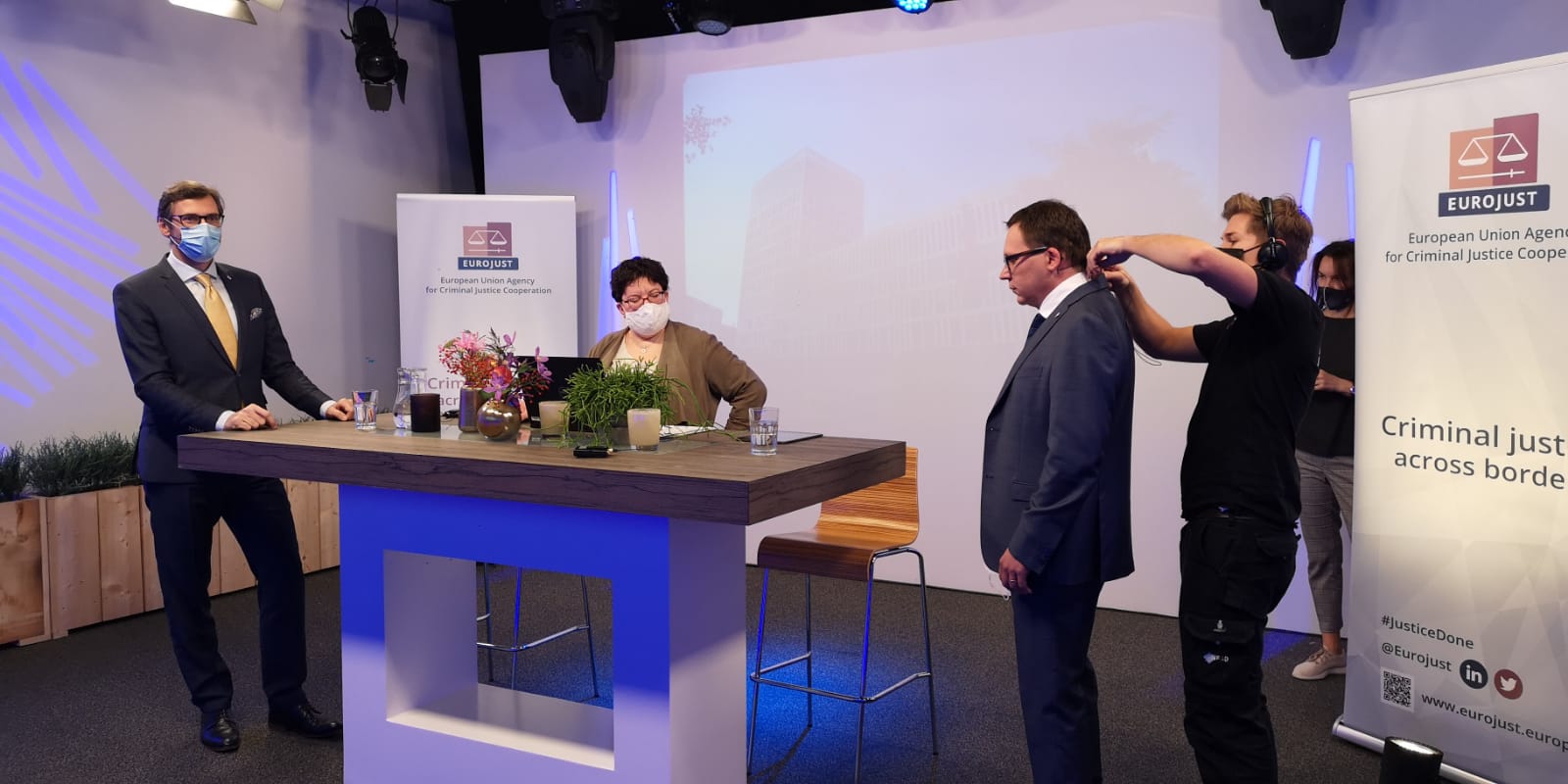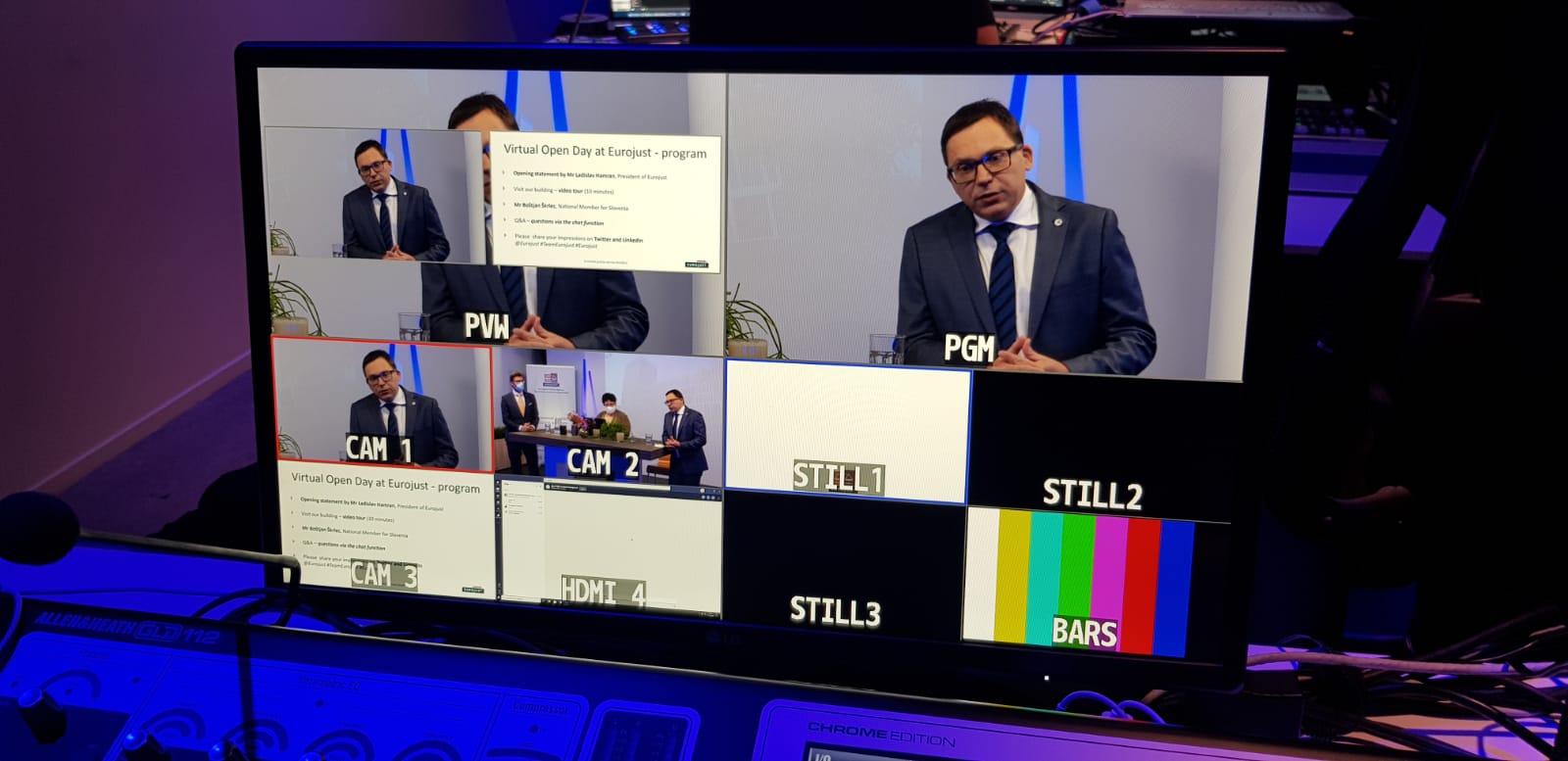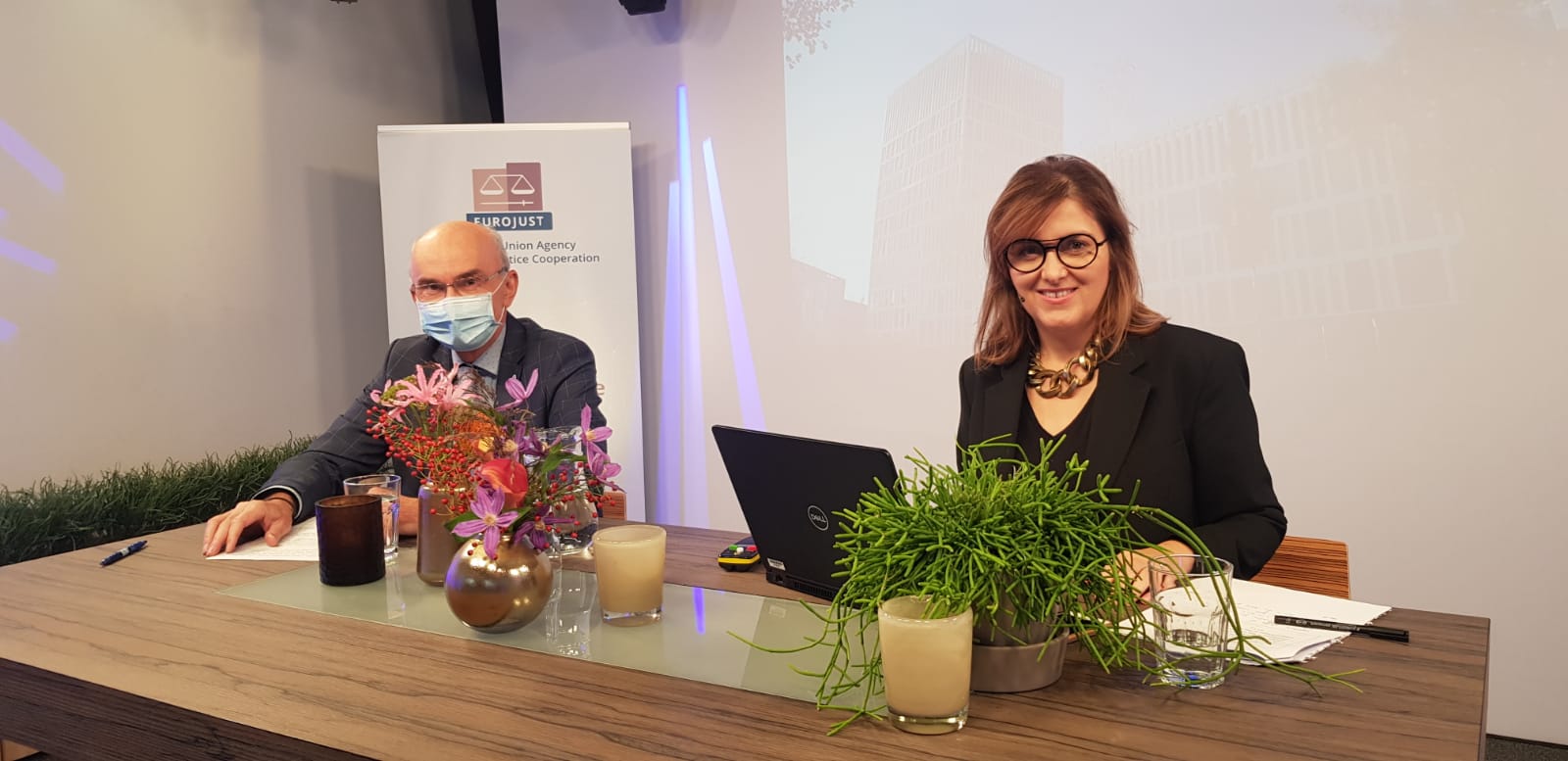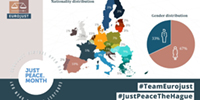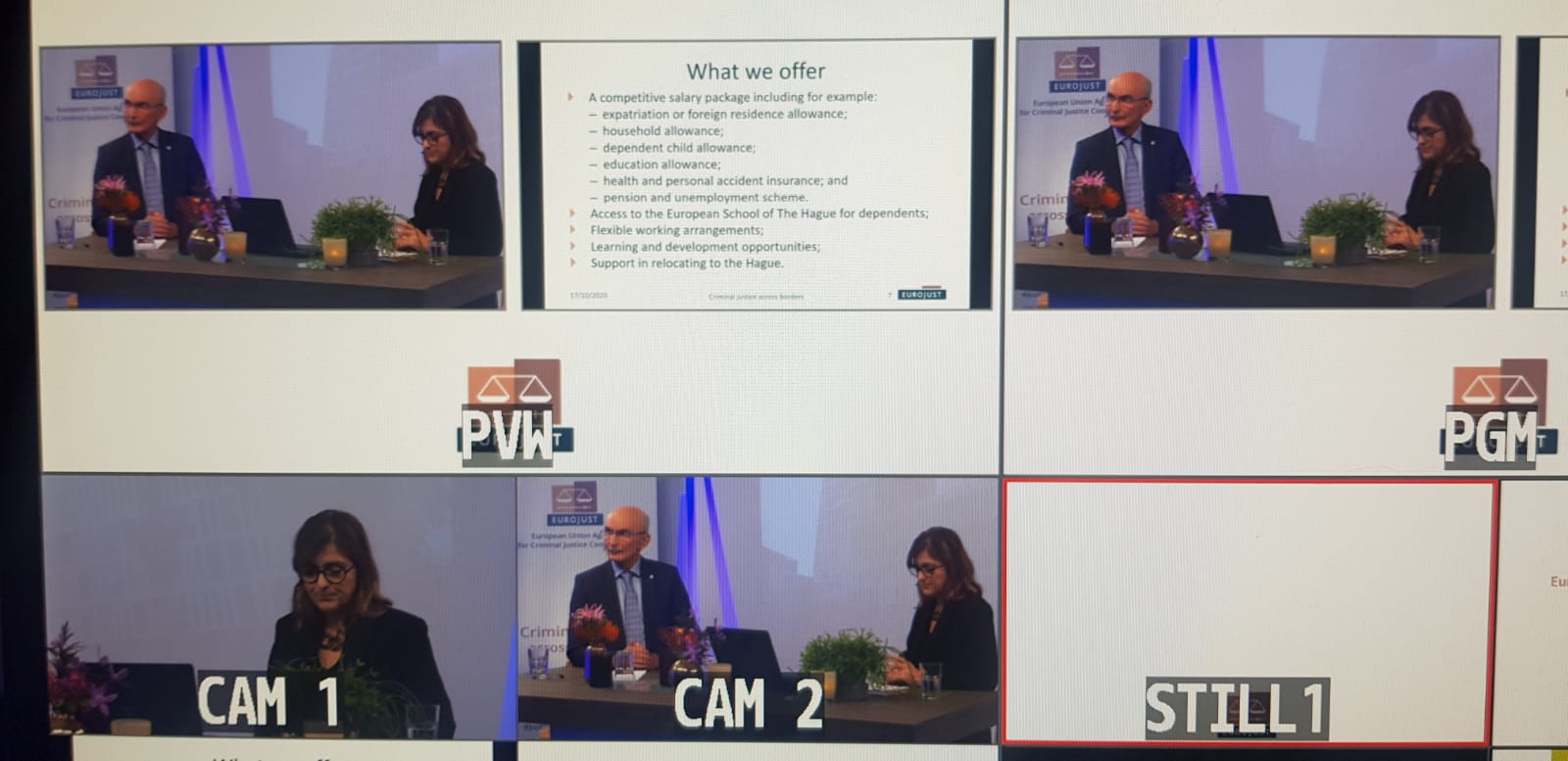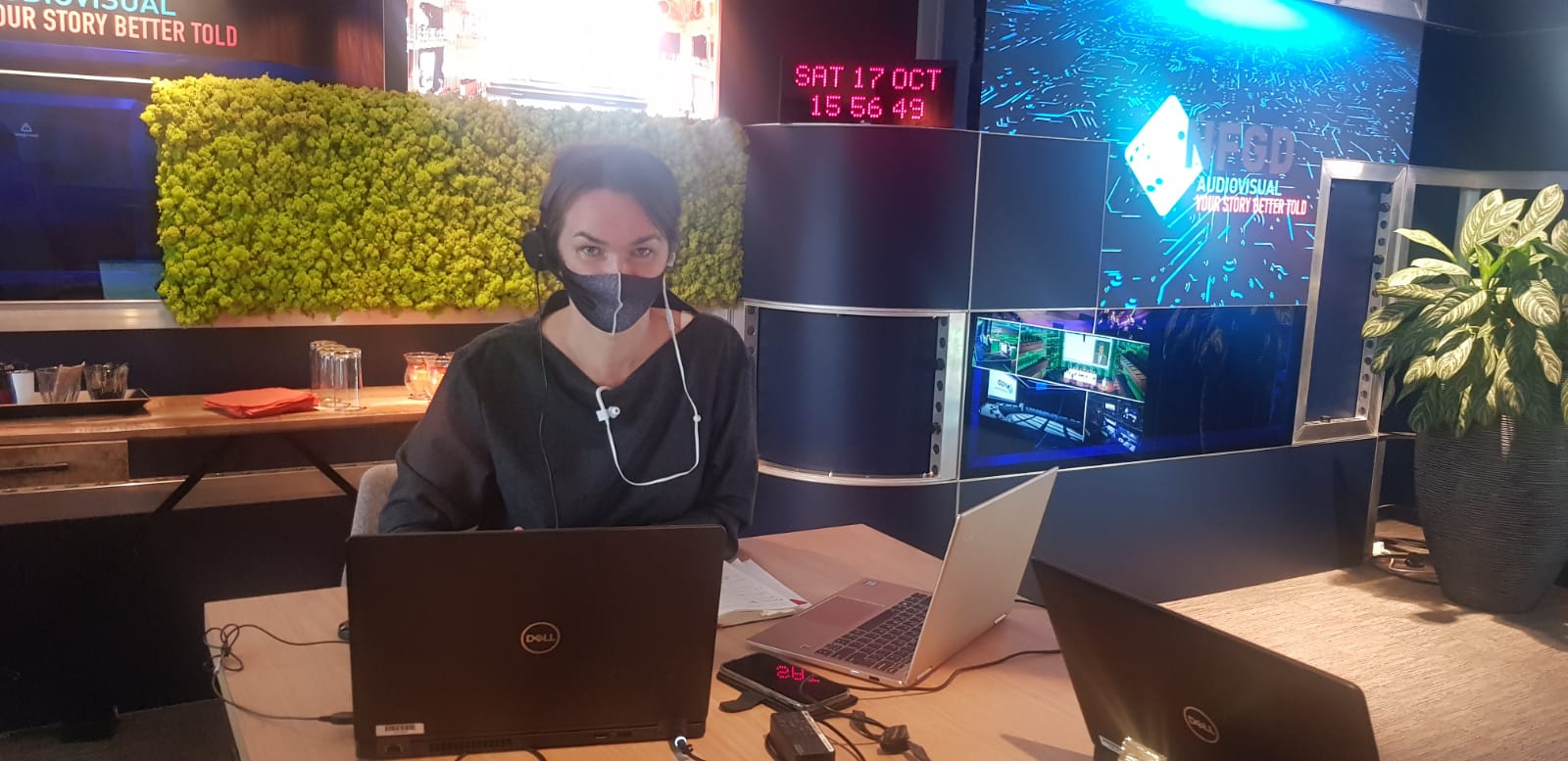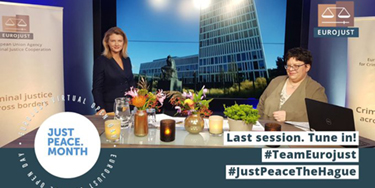Open Day 2020
Eurojust Open Day 2020
On 17 October, Eurojust invited participants from the EU and beyond to a Virtual Open Day event, which is part of the Just Peace Month, an initiative of the Municipality of The Hague to highlight the important work of international organisations and their contribution towards global peace, justice and freedom.
Welcome message from Eurojust's President

'For many years, it has been a tradition that international institutions in The Hague, our host city, open their doors to the public during an open day. We have always gladly participated, shown our building, and explained our mission and work to achieve criminal justice across borders. 2020 is different to what we are all used to. Of course, we cannot hold the Open Day in the Eurojust building, but I warmly welcome you to this first ever Virtual Open Day of our Agency.
We will not be able to offer you coffee this time, but we will take you on a tour of the building and tell you about our working methods, the practical results we achieved and how the Agency is governed.'
Ladislav Hamran, President of Eurojust, National Member for the Slovak Republic
Welcome message from the Administrative Director

'I warmly welcome you to our first Virtual Open Day and our special session on career opportunities. I know that today, you are joining us from all corners of Europe, from Turkey, Switzerland and even further afar. Chances are you would not have made it to our traditional open day, if we had done it the usual way. So, thanks to the innovation the pandemic is driving us to undertake, we are together creating and embracing a new opportunity, to e-meet today.'
Nikolaos Panagiotopoulos, Administrative Director
Meet a prosecutor sessions
Highlights of Eurojust’s Virtual Open Day
In this video, the President of Eurojust, the Administrative Director, the Head of HR, and four prosecutors present the highlights of Eurojust’s first Virtual Open Day.
Cybercrime session
Why are cybercrime cases so complex? And which role does Eurojust play in investigations of serious cross-border crime? Eurojust President Mr Ladislav Hamran and the National Member for Slovenia Mr Boštjan Škrlec provide insights into the work of the Agency – and why it is the only institution of its kind not only at EU level but worldwide.
Encrochat session
For years, EncroChat was a widely-used tool among organised crime groups. Ms Solveig Wollstad, the National Member for Sweden, explains why criminals built on this encrypted phone network and how the work of Eurojust contributed to its successful dismantling.
Drug trafficking session
Prosecutors and investigative judges tackling serious cross-border crime need to efficiently exchange information and solve a range of practical issues that regularly arise when using judicial cooperation tools. Ms Myroslava Krasnoborova, Liaison Prosecutor for Ukraine, explains the support Eurojust is offering to solve drug trafficking cases.
Career opportunities session
Eurojust’s Administrative Director Mr Nikolaos Panagiotopoulos and the Head of Human Resources Ms Claudia Trif provide in-depth information on employment opportunities and the candidate profiles Eurojust is looking for.
Eurojust Virtual Open Day | Thank You
Almost 300 participants from 34 countries virtually walked through the Eurojust building on 17 October 2020. A big thank you to all our guests for contributing to the success of this event. Let’s peek behind the scenes and travel around the world to see which countries were represented during Eurojust’s first Virtual Open Day.
Eurojust Virtual Open Day | Q&A
Please find the answers to the questions asked during our Digital Open Day on 17 October 2020, which could not be answered by the prosecutors, in view of the time schedule:
The EU Member States decided to found Eurojust in 1999, and after a first start in Brussels, Eurojust moved to The Hague, as it had been decided before to establish Europol there. The city was establishing itself as well as City of Peace and Justice, with many other international institutions in this domain already operating there, so the choice was a logical one.
Eurojust is paid from the EU budget. Its own budget in 2020 is EUR 40 million. With this, the Agency adds a lot of value, as it enables judicial actions which otherwise would not be possible. In 2019 alone, the rapid judicial cooperation coordinated through Eurojust led to the seizure of goods and money worth over EUR 2 billion, as well as nearly 2 700 arrests. The actions had impact on the trade in illicit drugs with a total value of EUR 2.8 billion. These results would not have been achieved without the involvement of Eurojust.
Eurojust does not start investigations but acts at the request of Member States or third countries that have a Liaison Prosecutor at Eurojust. The Agency is the essential link between the judiciary in various countries, as National Members and their teams can help with complicated legal issues in other jurisdictions. Eurojust can help to speed up procedures, such as the issuance of European Investigation Orders, and overcome difficulties regarding the European Arrest Warrant.
Furthermore, the Agency organises coordination meetings and action days or coordination centres to prepare for major operations where the judiciary and law enforcement in the countries concerned need to cooperate to take on cross-border criminal organisations.
The National Members and their Assistants and Deputies are paid for by the national authorities of the Member States, while Eurojust pays their additional costs, travelling etc. The staff of Eurojust is paid from the Agency’s budget.
At Eurojust, there are around 335 employees, out of whom about 100 work at the National Desks. There are slightly over 200 staff members employed directly by Eurojust, and additionally some 30 seconded experts from the Member States.
Of all staff at Eurojust, 67 % is female, 33 % male. Of the College Members (all the National Members together), nine are female.
Europe does not have one judicial system and every country has and keeps its own laws, but we enable that cross-border crime can be tackled and that the judiciaries in all countries involved can cooperate in a secure, coordinated and rapid way.
The digitalisation of justice in Europe is Eurojust’s main priority at the moment. The Agency will cooperate with the European Commission, who will come up with proposals to roll out a fully digital cooperation mechanism for the judiciary. Furthermore, cybercrime, trafficking in human beings, migrant smuggling and terrorism remain big challenges and priorities. Eurojust will as well work on the further globalisation of its cooperation activities. The existing network of more than 50 Contact Points around the world is crucial as organised crime groups increasingly operate on a global scale. The Agency has recently welcomed the team of EuroMed Justice, a programme run by Eurojust to improve the cooperation with the South Partner Countries of the EU.
Eurojust continues to do its work and assist the Member States. It is noticeable that they keep asking for the Agency’s support at about the same level as in the previous year. Eurojust has, for instance, provided assistance in cases of COVID-related crime, such as fraud with protective materials. Naturally, the Agency continues to work on all other kinds of cases as well. Eurojust can rely on a secure online environment to enable business continuity and organise coordination meetings, coordination centres and other meetings, ensuring the full spectrum of judicial cooperation. Of course, Eurojust follows the recommendations of the Dutch government and has its staff working from home or remotely as much as possible.
Following a referendum in 2015, in which the Danish people voted to no longer participate in Eurojust and Europol, Eurojust has signed an agreement with Denmark that enables the judicial cooperation to continue. Denmark still has an office at Eurojust. Instead of a National Member it now has a representative, who does not have voting rights in College meetings.
Eurojust acts at the request of Member States’ authorities and cannot initiate investigations. The Eurojust Regulation makes clear that the Agency is able to assist with investigations and prosecutions of all types of offences if requested by a competent authority of one of the EU Member States. The EPPO can initiate its own investigations into fraud with EU money and VAT fraud. Not all Member States are represented in the EPPO. While the roles and mandates of Eurojust and the EPPO are different, both institutions will work closely together. Arrangements are being made for a good and practical cooperation, in which Eurojust will assist with its expertise of 20 years in judicial cooperation in cross-border criminal matters.



